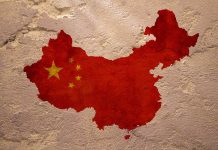
China has finally admitted its cyber warfare against America as Chinese officials brazenly confessed to orchestrating years of cyberattacks on US infrastructure due to our support for Taiwan.
At a Glance
- Chinese officials admitted in a secret Geneva meeting that they were behind cyberattacks targeting critical US infrastructure
- The attacks targeted US ports, water utilities, airports and other vital systems
- China directly linked the attacks to America’s support of Taiwan
- US officials warned China that such attacks could be considered acts of war
- President Trump’s transition team has been fully briefed on the situation
China’s Digital War Confession
In a stunning diplomatic revelation, Chinese officials have openly admitted to orchestrating widespread cyberattacks against American infrastructure as punishment for US support of Taiwan. The confession came during a closed-door meeting in Geneva last December between Chinese diplomats and former Biden administration officials. This marks the first time China has acknowledged responsibility for cyber aggression that has targeted everything from our ports and water systems to airports and other critical infrastructure – all while they previously maintained innocence. The US has long suspected China of these attacks, but this is the first time that China openly admitted their responsibility.
The secret summit was led by Nate Fick, who served as US ambassador for cyberspace and digital policy, and Wang Lei, a senior cyber official from China’s Ministry of Foreign Affairs. According to reports, Fick was caught off guard by the admission, as China has historically blamed these attacks on independent hackers operating without government sanction. This blatant confession represents a significant shift in China’s approach to international relations, essentially brandishing cyber warfare as a tool to punish America for its Taiwan policy.
Taiwan Tensions Drive Digital Attacks
The timing of these cyber confessions aligns perfectly with China’s increasingly aggressive military posturing around Taiwan. Beijing has never shied away from its territorial claim over Taiwan, but this marks a new frontier in their approach – attacking American soil through digital means while denying all responsibility on the world stage. US officials have interpreted China’s admission as a direct threat tied to America’s continued support for Taiwan’s independence and democratic governance.
“Using cybersecurity to smear and slander China,” claimed Beijing officials when publicly confronted on the matter, continuing their pattern of brazen denial in public while making threats behind closed doors.
The State Department under former president Biden promised to “take actions in response to Chinese malicious cyber activity,” calling China’s digital operations “some of the gravest and most persistent threats to U.S. national security.” Yet these words ring hollow after years of ineffective responses to increasingly bold Chinese aggression under the previous administration.
America’s Response And The Trump Factor
In response to this unprecedented admission, US officials issued stern warnings to their Chinese counterparts that cyberattacks on critical infrastructure could be considered acts of war. Both the outgoing Biden White House and President Trump’s transition team received comprehensive briefings on the meeting and its implications. The intelligence community has long tracked Chinese cyber operations, but this brazen admission changes the calculus entirely – moving from suspicion to confirmed hostile action against American soil.
The cyber confrontation occurs against the backdrop of deteriorating US-China relations that began with President Trump’s necessary trade war against China’s predatory economic practices. Now, with Trump back in office, Beijing appears to be testing American resolve through this surprising admission, potentially trying to gauge how the administration will respond to confirmed acts of cyber aggression rather than merely suspected ones.
Beyond Hacking: A Pattern Of Aggression
The Geneva meeting revelations follow alarming discoveries that Chinese hackers had been spying on communications of US government officials. A federal investigation revealed a comprehensive Chinese cyber-espionage campaign targeting American telecommunications companies to steal sensitive information, affecting at least eight major telecom providers. The FBI confirmed Chinese hackers had accessed networks of multiple US telecommunication companies, targeting individuals involved in government and politics.
The Biden administration had been warned about potential cyberattacks from China on US water systems – a warning that now takes on new significance with China’s admission. These attacks on our basic utilities represent a frightening escalation beyond traditional espionage into the realm of infrastructure warfare that could directly impact American citizens. The question now is whether China’s surprising transparency about these attacks represents a threat, a negotiation tactic, or simply arrogance about their cyber capabilities.






















